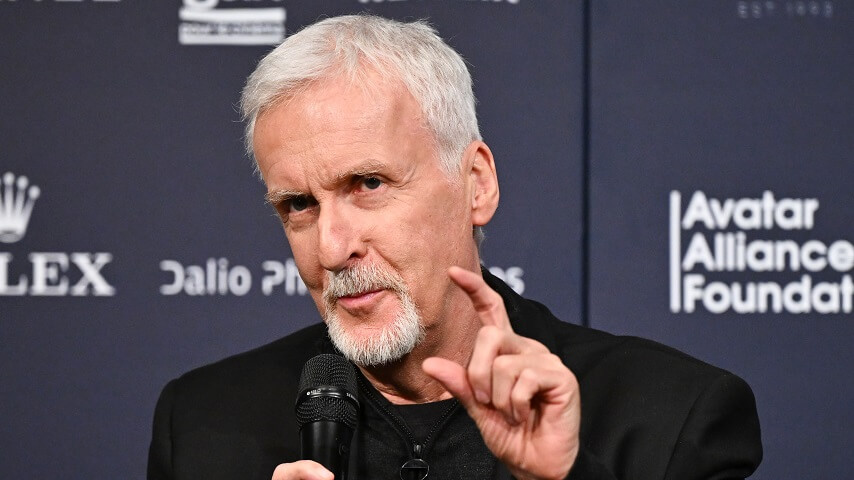Of the very small number of currently working Hollywood directors who could be said to be at, or even above, the level of Christopher Nolan in terms of both producing power and name recognition, James Cameron is almost certainly the one most willing to talk a little shit. Cameron has many laudable traits as both a filmmaker and an interview subject, but holding his tongue isn’t one of them—something that became obvious in a recent conversation he had with Deadline, about a new film centered on the nuclear bombings of Hiroshima and Nagasaki, and where Nolan came in for some genuine critique over his blockbuster biopic Oppenheimer.
Cameron was speaking at length about Ghosts Of Hiroshima, his planned film adaptation of the book of the same name, soon to arrive from his old buddy (and fellow Titanic and nuclear war obsessive) Charles R. Pellegrino. As with underwater travel, the intricate hair-bonding rituals of the Na’vi, and basically everything else he sets his moviemaking mind to, Cameron has thought and researched about this topic a lot, it is very clear, and he sounds really excited/horrified to tell the story of the bombs dropping. And that includes doing his damnedest to center the conversation in the viewpoint of the people the bombs were actually dropped on, something he (as Spike Lee did a few years back) criticizes Nolan’s movie for flinching away from. “It’s interesting what he stayed away from,” Cameron noted of Nolan’s film, after being reminded of the implausibility of turning Robert Oppenheimer’s life story into a massive box office property.
“Look, I love the filmmaking,” Cameron acknowledges. “But I did feel that it was a bit of a moral cop out. Because it’s not like Oppenheimer didn’t know the effects. He’s got one brief scene in the film where we see—and I don’t like to criticize another filmmaker’s film–but there’s only one brief moment where he sees some charred bodies in the audience and then the film goes on to show how it deeply moved him. But I felt that it dodged the subject. I don’t know whether the studio or Chris felt that that was a third rail that they didn’t want to touch, but I want to go straight at the third rail. I’m just stupid that way.” (When told that Nolan felt it wasn’t the place of his particular film to tackle the effects of the bombs from the perspective of the people they were dropped on, Cameron quipped, “Okay, I’ll put up my hand. I’ll do it, Chris. No problem. You come to my premiere and say nice things.”)
Cameron has been on this particular topic for multiple decades at this point—this is the man who filmed that sequence from Terminator 2, so take it as read that he thinks about nuclear bombs more than most people—including traveling to Japan with Pellegrino to meet with Tsutomo Yamaguchi, one of the only people to have survived both bombings. (And who ultimately died of stomach cancer in his 90s.) Cameron is, among other things, un-shy about admitting he has limits on the story he wants to tell, too, saying he has no interest in using the film to discus the politics that led to the dropping of the bomb, and simply wants to capture its effects on the people who were at literal ground zero:
I don’t want to get into the politics of, should it have been dropped, should they have done it, and all the bad things Japan did to warrant it, or any of that kind of moralizing and politicizing. I just want to deal in a sense with what happened, almost as if you could somehow be there and survive and see it… I just think it’s so important right now for people to remember what these weapons do. This is the only case where they’ve been used against a human target. Setting aside all the politics and the fact that I’m going to make a film about Japanese people…I don’t even speak Japanese, although I have a lot of friends there. I’ve been there a million times, and I may need to work with a Japanese writer, a Japanese producer, so that I am not a complete outsider to their cultural perspective. I want to keep it as a kind of neutral witness to an event that actually happened to human beings, so that we can keep that flame alive, that memory. They’ve only died in vain if we forget what that was like and we incur that a thousand fold upon ourselves and future generations.

 Keep scrolling for more great stories.
Keep scrolling for more great stories.
